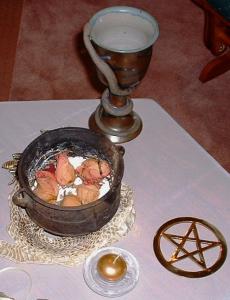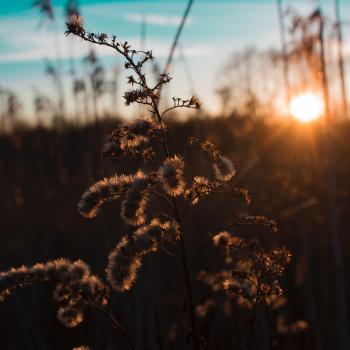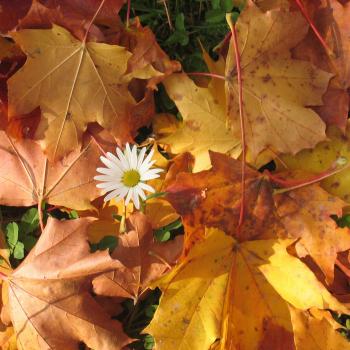This month I’ve been trying to answer some important questions about how ‘community’ operates, and how we could learn to do it even better.

- How do we support one another when the going gets tough?
- How do we offer assistance to one another while respecting autonomy and boundaries?
- How do we manage our assumptions when we want to offer ‘help’ to someone we judge as ‘needing our help’ – and what if they don’t want it, or need it? What if they DO need and want our assistance, but our assumptions make them uncomfortable?
- How do we support boundaries and autonomy and still take care of one another?
The Gentle Reader will see at once that these questions can lead in many directions; feel free to create your own list.
I find UU-style religious community (in which each of us is free to ‘believe’ or ‘know’ different things from what other UUs may ‘know’ or ‘believe’) vitally important to my experience of living in the world. I deeply value communities in which the same congregation can equally love and support UU-Christians, UU-Jews, UU-Pagans, UU-Humanists, UU-Atheists, UU-Transcendentalists, and many others.
In which we can do, together, the work of anti-racism and of inclusiveness of all kinds, and hold each other in kindness when our efforts are clumsy. In which power can be negotiated and renegotiated, in which our Called Ministers are not our intermediaries but can sometimes be our Priests and Priestesses. In which compulsive grammarians (like me, often) can feel free to point out my sentence fragments. And I can still feel free to write them.
… but I digress.
Building the Beloved Community is something many UU congregations excel at. First, we explicitly welcome the worth and dignity of everyone. Second, most congregations are either small enough so that everyone knows everyone else and has a pretty good idea what’s happening when Life Happens and a Helping Hand Would Be Good — or else they’re big enough to have an explicit way of coordinating ‘needs’ and ‘assistance from the community.’
I’ve seen such things as
- a committee explicitly charged with gathering news from around the congregation and making sure the ministers know about it – births, injuries, illnesses, engagements, marriages, divorces, moves, lost leases … whatever.
- a committee that delegates one of its members to check in with a person or family when Something Happens, with a rough list of possible-help-needed questions
- a designated person who will phone to ask not only ‘what do you need?’ but also ‘who would you like to help with that?’
One thing these processes have in common is vitally important – they take the burdensome task of Asking for Help off of the person who needs that help, and give the task to someone who won’t find it a burden, and won’t feel rejected if requested help cannot be given.
Let me give a concrete example.
Some years back, a congregant of my acquaintance was injured in an accident. Suddenly a number of routine activities of daily living were impossible. The designated ‘Caring Committee’ person phoned while the patient was still hospitalized and began to get an idea what services and supports would be needed, and also who, among friends and congregants, the patient felt most comfortable receiving certain kinds of help from.
Over the next several weeks, the Caring Committee rep made occasional broadcast requests to the congregation as a whole:
“So-and-so needs rides to the doctor on the following days, please e-mail me if you can do that .” (or, nowadays, go to www.LotsaHelpingHands.comand schedule yourself in).
“So-and-so needs meals …” and so on.
In addition to the blanket requests, the Caring Committee rep made occasional personal phone calls or e-mails to specific congregants:
“So-and-so needs help washing their hair for the next X weeks, and you’re one of the people they’re willing to have come over to do that. Could you do it once or twice during those weeks?”
“So-and-so needs help getting dressed on a couple of days while Spouse is away – would you be able to do that on Monday?”
You get the idea.
Long after the injuries had healed, ‘So-and-so’ mentioned how safe, loved, and cared for they felt during their recovery, and what a relief it was to only have to ask once for assistance. Not to have to go down the phone list asking one after another, looking for the one person who would have time on Tuesday.
Take a breath, pause, and take that in.
Gentle Reader, I dunno ’bout you, but I had never realized that it might take ten or twenty calls to find the available, willing person … until I tried it. ‘Demoralizing’ wouldn’t half cover it, especially if I were already using all my energy just to get dressed and down the stairs in the morning.
UU congregations are great at this partly because there are enough people so that the workload can get spread around, and partly because somebody, sometime, has taken the time to think this stuff through and look for ways to make it work.
Pagan communities could learn a lot from this. Often Pagan groups – covens, tribes, groves, kindreds and so on – are too small, or too geographically spread out, to make this easy. But we could still try.
CUUPS chapters can be a bridge. UU-Pagans have much to learn from each side, and much to teach.
The Witch steps forward out of the shadows.
“You’re being so rational about this,” she says. “When were you going to say the rest of it?”
I stare at the keyboard. What haven’t I said?
“Beloved Community isn’t just giving each other rides and cooking for one another,” she says. “You haven’t spoken of Love.”
My Familiar Cat leaps to the top of my desk and walks over to look me in the eye.
“Everyone needs the experience of being seen,” I say, trying not to notice that I’ve forgotten this a dozen times.
“Everyone needs to feel that they matter.” The Cat settles next to my computer.
“By asking for help, we tell each other that our help matters.
“By giving help, we tell each other that our challenges are seen, held, known and supported. That it matters how we treat one another, that pain and celebration deserve honor.”
I look for The Witch, but my mirror is empty. I see I am waiting to find my way to the words and feelings I mean to share with you.
Our flames unite to set our fire alight
In love and trust, with power in our stance;
In darkest night, Community shines bright.
Our ties and trust reflected in each glance;
As caring friends we share our own delight.
The Witch presses ‘save’ on the computer, strokes the Cat, turns out the light.
Blessed Be.
Maggie Beaumont, MA, is a former Dean of Students of Cherry Hill Seminary and served on the Board of Trustees of the national Covenant of Unitarian Universalist Pagans from 2014-17. After an extensively varied career in mechanical engineering, journalism, real estate, and adult education, she is currently a Chaplain Intern at a level-one trauma center in Philadelphia and a first-degree member of Weavers of the Moonfire, a coven in the Assembly of the Sacred Wheel. She has been a member of the Unitarian Universalist Congregation of Princeton (NJ) and of its affiliated Evergreen CUUPS chapter for more than 15 years and is also a member of the Unitarian Society of Germantown (PA). After leaving a long marriage last year, she now shares an apartment with one cat, three looms, and eight bookshelves full of books. She is also a member of the Reclaiming tradition and has taught classes and facilitated ritual at summer intensives on the East coast of the US.

















